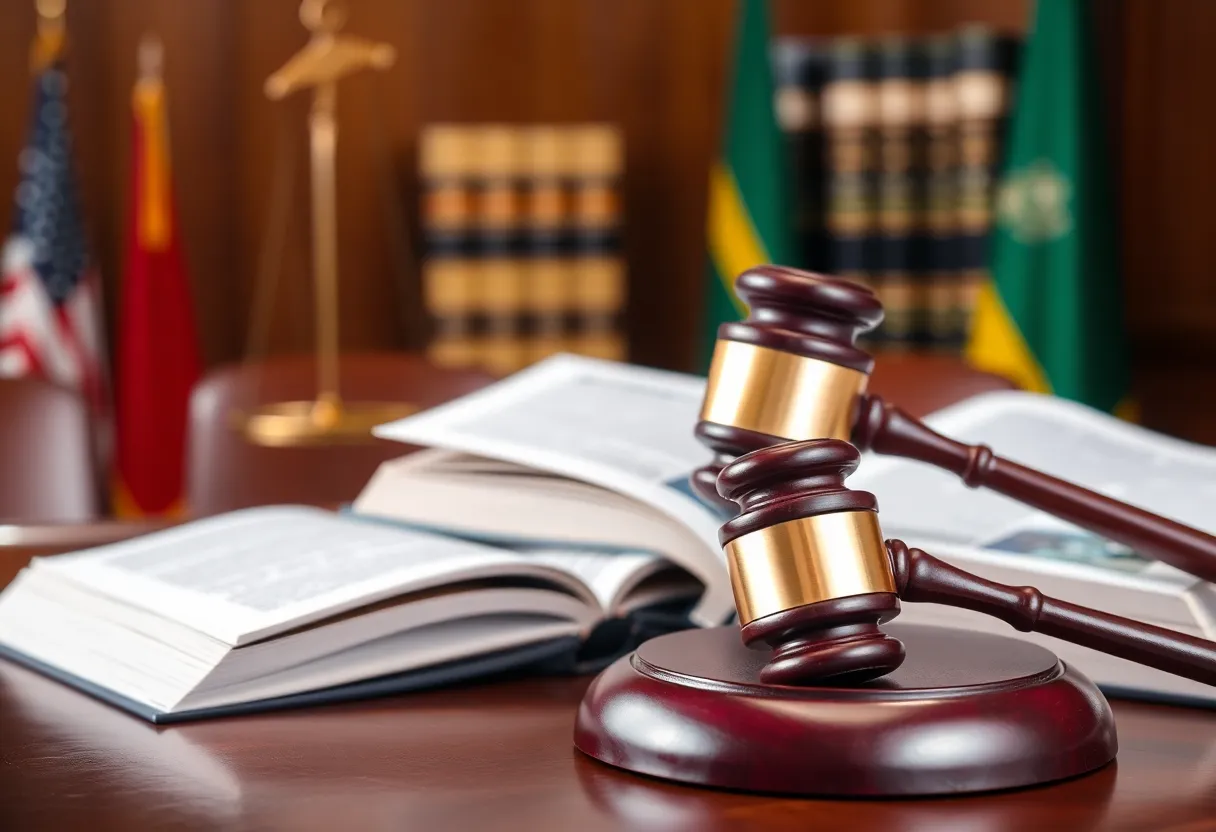News Summary
The Arizona Supreme Court is set to review the Voters Right to Know Act, a law passed by voters requiring disclosure of large anonymous campaign donations. The case raises questions about free speech rights and the implications of transparency in political financing. While the law has faced legal challenges citing constitutional violations, previous courts have upheld it, leading to debates on the balance between donor privacy and the public’s right to know. The high court’s decision could have significant effects on campaign finance laws in Arizona.
Arizona Supreme Court to Review Voter-Approved Dark Money Disclosure Law Impacting Free Speech Rights
The Arizona Supreme Court is set to evaluate the Voters Right to Know Act, a law approved by voters that mandates the disclosure of anonymous campaign spending exceeding $50,000 for statewide elections and $25,000 for local elections. This significant legal review comes amid concerns over the implications for free speech rights, with various groups arguing the law could infringe upon constitutional protections.
The Voters Right to Know Act, overwhelmingly supported by voters with 70% approval in 2022, requires organizations involved in electoral media expenditures to disclose donors contributing more than $5,000. Traditionally, federal law does not mandate similar donor disclosures for these organizations, creating a divergence that places Arizona’s law under scrutiny.
The law has been challenged by the Arizona Free Enterprise Club and the Center for Arizona Policy, which contend that it violates multiple provisions of the Arizona Constitution, including protections for free speech, association, and privacy, as well as the principle of separation of powers. However, both a trial court and the Arizona Court of Appeals have upheld the constitutionality of the Voters Right to Know Act, indicating that the state’s interests in transparency and anti-corruption justify the disclosure requirements.
The Court of Appeals noted that the plaintiffs did not provide convincing evidence of any chilling effect or harassment arising from donor disclosures, reaffirming the law under an approach termed “exacting scrutiny” rather than “strict scrutiny.” This suggests that while strict scrutiny is typically applied to laws that restrict free speech, the Arizona judicial system may view the disclosure requirements in a different light based on state precedent.
In a key development, the Arizona Supreme Court has requested additional arguments regarding whether the federal First Amendment standards apply to the state’s free speech provisions. Such discussions are critical, as Arizona’s constitution may afford broader protections than the U.S. Constitution, which could lead to heightened scrutiny of political spending disclosure laws in the state.
This case is drawing significant attention and has the potential to reshape public discourse on campaign finance and political transparency in Arizona. It highlights the ongoing debate about the balance between transparency in political donations and the preservation of free speech rights in electoral contexts.
For adherence to compliance, the law necessitates clear disclosures not only from organizations but directly from their donors, setting a new precedent within the state. Should the Arizona Supreme Court find that the state constitution offers stronger protections than federal law, it could influence future legal standards surrounding free speech, campaign financing, and disclosure laws in Arizona.
The outcome of this case is uncertain, but it could have profound effects on how campaign financing operates within the state and may alter the landscape of political advocacy and the ability of voters to access information regarding the sources of campaign funding.
Deeper Dive: News & Info About This Topic
- Arizona Mirror: Dark Money Disclosure Law
- Wikipedia: Campaign Finance in the United States
- Reason: Arizona Mom Arrested Over Criticism
- Google Search: Dark Money Disclosure Law Arizona
- AZ Central: Arizona Supreme Court Strikes Down Labor Union Release Time
- Encyclopedia Britannica: Free Speech
- The Center Square: Arizona Court Upholds Dark Money Law
- Google News: Arizona Supreme Court Free Speech

Author: STAFF HERE PHOENIX WRITER
The PHOENIX STAFF WRITER represents the experienced team at HEREPhoenix.com, your go-to source for actionable local news and information in Phoenix, Maricopa County, and beyond. Specializing in "news you can use," we cover essential topics like product reviews for personal and business needs, local business directories, politics, real estate trends, neighborhood insights, and state news affecting the area—with deep expertise drawn from years of dedicated reporting and strong community input, including local press releases and business updates. We deliver top reporting on high-value events such as the Waste Management Phoenix Open, Cactus League Spring Training, and Arizona State Fair. Our coverage extends to key organizations like the Greater Phoenix Chamber of Commerce and Visit Phoenix, plus leading businesses in technology and healthcare that power the local economy such as Intel and Banner Health. As part of the broader HERE network, including HERETucson.com, we provide comprehensive, credible insights into Arizona's dynamic landscape.





